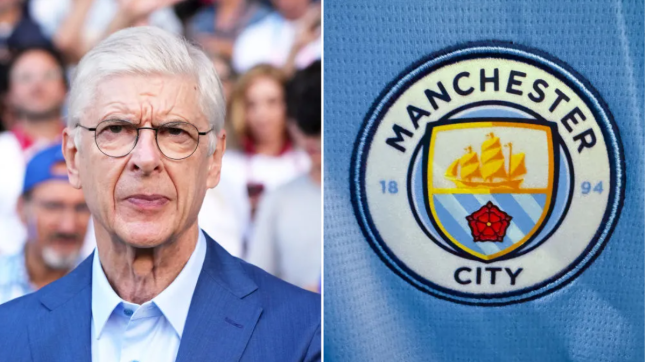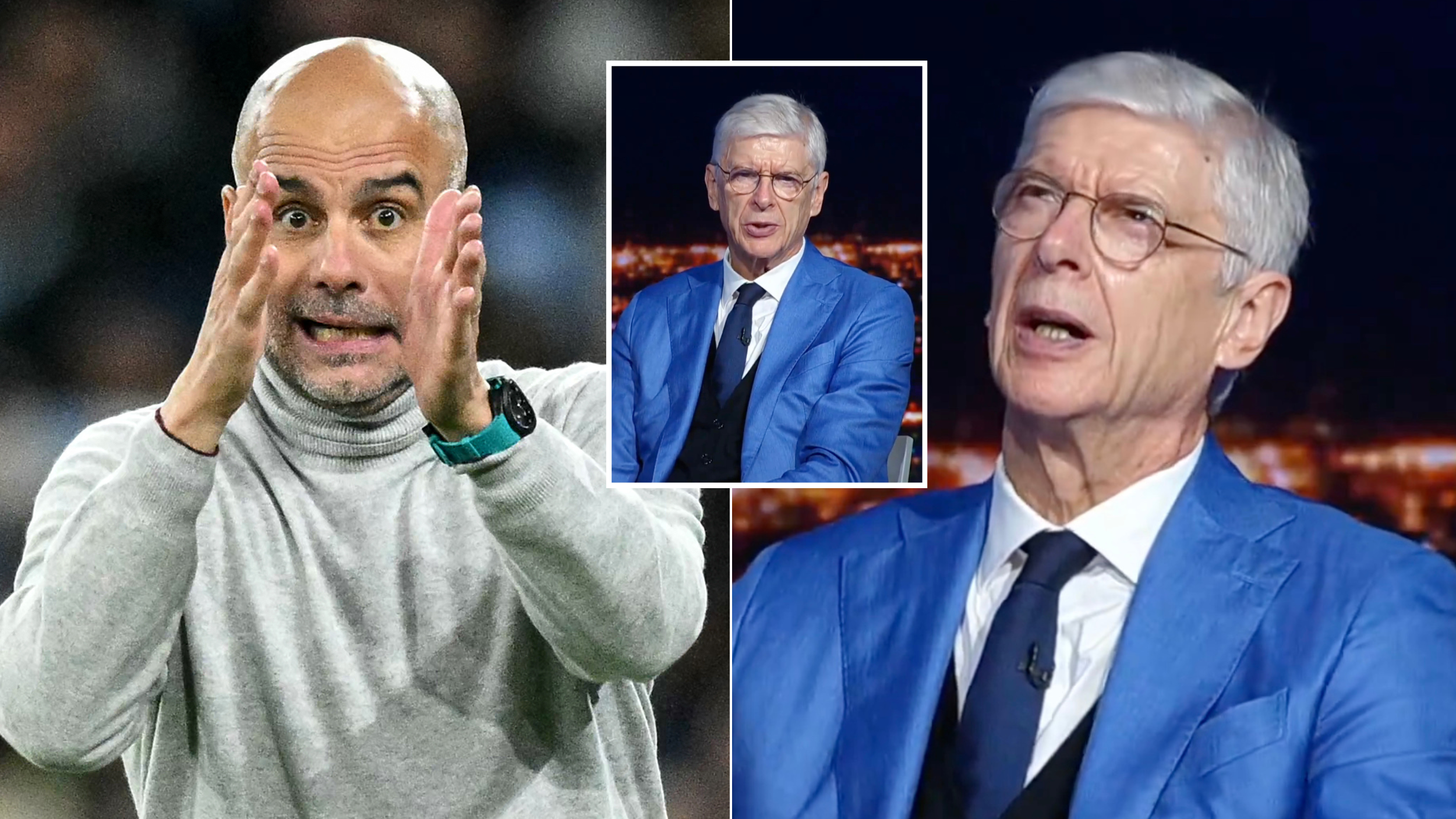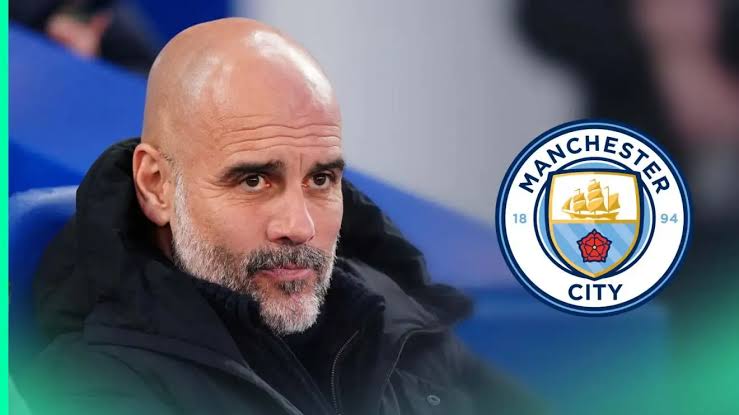Arsene Wenger shares what he really likes about Man City star after watching him for Man City

In the ever-evolving landscape of modern football, few voices carry as much weight and credibility as that of Arsene Wenger. The French tactician, whose revolutionary approach to the beautiful game transformed Arsenal and influenced an entire generation of players and coaches, recently turned his analytical gaze toward Manchester City’s latest acquisition, Omar Marmoush. The Egyptian forward’s meteoric rise and subsequent high-profile transfer to the Etihad Stadium has captured the attention of football purists worldwide, but perhaps no endorsement carries more significance than that of the former Arsenal maestro.
Wenger’s assessment came in the aftermath of one of the most compelling individual performances of the 2024-25 season – Marmoush’s stunning hat-trick in Manchester City’s emphatic 4-0 victory over Newcastle United. This masterclass display not only showcased the 26-year-old’s immense potential but also provided Wenger with the perfect canvas to articulate what makes the Egyptian international such a fascinating prospect in contemporary football.
The Performance That Caught Wenger’s Attention
The match against Newcastle United represented far more than a routine Premier League fixture for Manchester City. Following their heartbreaking 3-2 defeat to Real Madrid in the Champions League, Pep Guardiola’s side desperately needed a performance that would restore confidence and momentum. The pressure was palpable, the stakes were high, and it was in this crucible of expectation that Omar Marmoush truly announced himself to the English football faithful.
From the opening whistle, Marmoush displayed the kind of composure and clinical finishing that separates good players from great ones. His first goal came from a perfectly timed run that split Newcastle’s defensive line, demonstrating the spatial awareness and movement that would later draw Wenger’s specific praise. The second goal showcased his technical ability, as he controlled a difficult pass before unleashing a strike that left the Newcastle goalkeeper with no chance. The hat-trick was completed with a goal that epitomized everything Wenger would later highlight about the player’s mentality – a fearless drive toward goal that resulted in a composed finish under pressure.
What made the performance even more remarkable was the context surrounding it. Marmoush had endured a somewhat stuttering start to life at Manchester City, with his initial appearances failing to live up to the considerable expectations that accompanied his £59 million transfer fee. Critics had begun to question whether the Egyptian could adapt to the relentless pace and physicality of the Premier League, making his Newcastle performance all the more significant as a statement of intent.
Wenger’s Tactical Analysis: Mobility as the Foundation
Speaking on beIN SPORTS, Wenger demonstrated the analytical prowess that made him such a respected figure during his managerial career. His assessment of Marmoush began with perhaps the most fundamental aspect of modern forward play – mobility. “What I liked is Marmoush; he’s mobile and he looks powerful as well, in his run,” Wenger observed, immediately identifying the dual qualities that make the Egyptian such a difficult proposition for defenders.
In Wenger’s tactical philosophy, mobility has always been paramount. During his time at Arsenal, he developed some of the most dynamic attacking players in Premier League history, from Thierry Henry’s devastating pace and movement to the intricate interplay of his later teams. His emphasis on Marmoush’s mobility speaks to a deeper understanding of how modern football has evolved, where static strikers struggle to find space in increasingly compact defensive systems.
Marmoush’s mobility manifests itself in multiple ways on the pitch. His ability to drift wide and create overloads in different areas of the field allows Manchester City to maintain their positional fluidity under Guardiola’s system. When he drops deep to receive possession, he drags center-backs out of position, creating space for teammates to exploit. Conversely, his willingness to make runs in behind keeps defensive lines honest and prevents them from pushing too high up the pitch.
The power aspect that Wenger highlighted is equally crucial in the modern game. Physical strength in today’s football isn’t just about winning aerial duels or holding off defenders; it’s about the explosive acceleration that allows players to separate themselves from their markers in crucial moments. Marmoush possesses this quality in abundance, as evidenced by his ability to create goal-scoring opportunities even when closely marked.
The Mental Fortitude Factor
However, perhaps the most telling aspect of Wenger’s analysis was his emphasis on Marmoush’s psychological makeup. “He looks as well that, in his mind, he’s not scared of anybody,” Wenger stated, highlighting what he clearly considers to be the Egyptian’s most valuable asset. This observation speaks to Wenger’s deep understanding of what separates players who merely possess technical ability from those who can deliver when it matters most.
Mental toughness in football manifests itself in numerous ways. For a striker, it might mean maintaining confidence after missing chances, having the courage to demand the ball in pressure situations, or possessing the self-belief to attempt ambitious shots when easier options are available. Marmoush’s fearless approach was evident throughout his performance against Newcastle, where he never hesitated to take on defenders, attempt difficult passes, or shoot from challenging angles.
This psychological resilience becomes even more critical when considering the unique pressures that come with playing for a club like Manchester City. The expectation to win every match, the scrutiny from media and fans, and the constant pressure to justify substantial transfer fees can overwhelm even technically gifted players. Marmoush’s apparent immunity to these pressures, as identified by Wenger, suggests he possesses the mental fortitude necessary to thrive at the highest level.
The Frankfurt Foundation: Building a Reputation
Wenger’s praise of Marmoush was not born from a single performance but rather from extended observation of the player’s development. The legendary manager had been tracking the Egyptian’s progress during his time at Eintracht Frankfurt, where Marmoush established himself as one of the Bundesliga’s most exciting attacking talents.
His Frankfurt statistics tell a compelling story of consistent excellence. In just 17 Bundesliga appearances during the first half of the 2024-25 season, Marmoush scored an impressive 15 goals while providing 9 assists. These numbers represent far more than mere statistical achievement; they demonstrate a player capable of both creating and finishing chances at the highest level of German football.
The Bundesliga, with its tactical sophistication and physical demands, served as the perfect proving ground for Marmoush’s development. German football’s emphasis on pressing, counter-pressing, and quick transitions prepared him well for the demands he would later face in the Premier League. His ability to thrive in this environment while adapting to different tactical systems demonstrated the versatility that would later make him such an attractive proposition for Pep Guardiola.
Wenger’s acknowledgment that he had been following Marmoush’s Frankfurt career speaks to the player’s growing reputation within football’s most knowledgeable circles. When a manager of Wenger’s caliber takes notice of a player’s development, it typically signals that the individual possesses qualities that transcend mere statistical achievement.
The Adaptation Challenge: Finding Comfort in Manchester
One of the most insightful aspects of Wenger’s analysis was his recognition of the adaptation challenges that Marmoush initially faced at Manchester City. “I saw him with Frankfurt play, he had some special talent, and in the first two, three games with City was disappointing, but yesterday already you feel him comfortable,” Wenger observed, demonstrating his understanding of the complexities involved in transitioning between leagues and tactical systems.
This acknowledgment reflects Wenger’s own experience in managing players through difficult adaptation periods. Throughout his career, he witnessed numerous talented individuals struggle initially before eventually flourishing in new environments. His patience with Marmoush’s early struggles and recognition of the improvement shown against Newcastle reveals the kind of long-term thinking that made him such a successful developer of talent.
The challenges facing any player making the transition from the Bundesliga to the Premier League are multifaceted. The pace of the English game, while not necessarily faster than German football, is relentless in its intensity. There are fewer moments to rest, less time on the ball, and a physical edge that can overwhelm players who haven’t fully adjusted. Additionally, Manchester City’s specific tactical demands under Guardiola require players to understand complex positional rotations and maintain extremely high levels of concentration throughout matches.
Marmoush’s gradual improvement, as noted by Wenger, suggests a player with the intelligence and adaptability necessary to overcome these challenges. His willingness to learn and adjust his game while maintaining the core qualities that made him successful in Germany demonstrates the kind of professional maturity that Wenger clearly values.
Guardiola’s Tactical Integration
The success of Marmoush’s integration into Manchester City’s system cannot be divorced from Pep Guardiola’s tactical genius. The Spanish manager has built his reputation on his ability to extract maximum potential from attacking players by placing them in positions where their strengths can be maximized while their weaknesses are minimized.
In Marmoush, Guardiola has found a player whose natural attributes align perfectly with his tactical philosophy. The Egyptian’s mobility allows him to participate in the complex positional rotations that are fundamental to City’s attacking play. His ability to play across multiple positions in the front line provides Guardiola with the tactical flexibility he craves, allowing the team to adapt their shape and approach based on the specific demands of each match.
The power and directness that Wenger highlighted also serve Guardiola’s system well. While City are renowned for their patient build-up play and intricate passing combinations, they also need players capable of providing directness and pace to stretch opposing defenses. Marmoush’s willingness to run at defenders and take risks in the final third adds a different dimension to City’s attack, making them less predictable and harder to defend against.
The Broader Impact on Manchester City’s Attack
Marmoush’s emergence as a genuine threat has implications that extend far beyond his individual contributions. His presence in the squad provides Manchester City with tactical options that they previously lacked, particularly in terms of having multiple players capable of operating effectively in central attacking positions.
The potential combination of Marmoush alongside Erling Haaland presents intriguing possibilities for Guardiola’s tactical setup. While Haaland’s physical presence and clinical finishing have made him one of the world’s premier strikers, Marmoush’s mobility and creative ability offer a complementary skill set that could unlock new dimensions in City’s attack. The Egyptian’s willingness to drift wide and create space could provide Haaland with even more opportunities to exploit his exceptional positioning and finishing ability.
Additionally, the development of Brazilian winger Savinho adds another layer to City’s attacking potential. While Savinho has yet to find the back of the net this season, his seven assists in 20 Premier League appearances demonstrate his ability to create opportunities for teammates. The potential front three of Haaland, Marmoush, and Savinho, with their diverse skill sets and complementary abilities, could form one of the most formidable attacking units in European football.
The Evolution of Modern Forward Play
Wenger’s analysis of Marmoush also provides insight into how the striker position has evolved in modern football. The days of static target men who rely primarily on service from teammates are largely behind us, replaced by dynamic forwards who can contribute across multiple phases of play.
Marmoush embodies this evolution perfectly. His ability to press defenders high up the pitch, drop deep to link play, drift wide to create overloads, and make penetrating runs behind defensive lines makes him the kind of complete forward that modern football demands. His goal-scoring record at both Frankfurt and in his early Manchester City appearances demonstrates his clinical finishing ability, while his assist numbers reveal a player capable of creating opportunities for teammates.
This versatility is particularly valuable in Guardiola’s system, where positional flexibility and tactical intelligence are prized above specialized skills. Players who can adapt their role based on the specific demands of each phase of play are invaluable in a system that requires constant adjustment and adaptation based on the movements of teammates and opponents.
Looking Forward: The Champions League Challenge
As Manchester City prepare for their crucial Champions League encounters, Marmoush’s development and integration into the squad becomes even more significant. The hat-trick against Newcastle not only boosted his confidence but also provided Guardiola with another option for the biggest matches of the season.
The Champions League presents unique challenges that require players to elevate their performance to the highest level. The tactical sophistication of opponents, the pressure of knockout football, and the need for moment of individual brilliance all demand players who can deliver when it matters most. Marmoush’s fearless mentality, as identified by Wenger, suggests he possesses the psychological makeup necessary to thrive in these high-pressure situations.
His performance against Newcastle, coming so soon after City’s defeat to Real Madrid, demonstrated his ability to respond positively to setbacks and deliver when his team needed him most. This resilience will be crucial as City navigate the remainder of their Champions League campaign and compete for major honors both domestically and internationally.
The Wenger Seal of Approval
Ultimately, Arsene Wenger’s endorsement of Omar Marmoush carries weight that extends far beyond typical punditry. When a manager who discovered and developed some of the Premier League’s greatest talents identifies specific qualities in a player, the football world takes notice.
Wenger’s emphasis on Marmoush’s mobility, power, and mental toughness reflects his deep understanding of what makes players successful at the highest level. His recognition of the Egyptian’s potential, combined with his patience regarding the adaptation process, suggests a player who has all the tools necessary to become a key figure for Manchester City in the years to come.
As Marmoush continues his journey at the Etihad Stadium, he does so with the knowledge that one of football’s most respected figures believes in his ability to succeed. With his combination of technical ability, physical attributes, and mental fortitude, all identified and praised by Wenger, the Egyptian forward appears destined for a bright future in Manchester City’s illustrious history.
The hat-trick against Newcastle may have been just the beginning of what promises to be an exciting chapter in both Marmoush’s career and Manchester City’s continued pursuit of excellence. With Wenger’s seal of approval and his own undeniable talent, the Egyptian star seems poised to make his mark on English football’s biggest stage.















